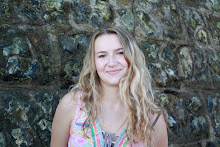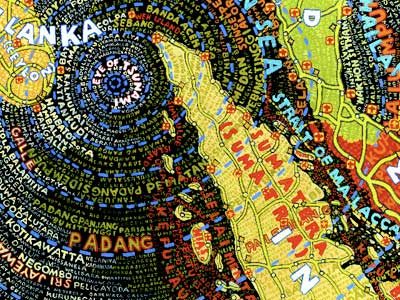Researching nothingness is certainly more difficult than one might think. During my desktop research I came across a few interesting publications. Firstly, there is The Book of Nothing by John D. Barrow, which captures the mysteries of non-existence, the origins of zero in Egyptian, Babylonian, Mayan and Indian cultures. It touches on Medieval and Shakespearean conceptions of nothingness to move into the contemporary, science based, understanding of the Vacuum. It surely is an fascinating read but for me Barrow's work was a little too abstract and detached from the ordinary people experiences. I am not that interested in looking for Nothing in the cosmic space while there is so much Nothing around us everyday. It seems like that human side of nothing is not only easier to capture but for me, personally, it's also more interesting to explore.
There are so many thinkg people do when they say they do nothing at all. One could even find advice on what to do if you have nothing to do! The list I found includes trying to swallow your own tongue (amusement potential: 1-2 minutes), pretending to be a car (amusement potential: 5-10 minutes) and trying not to think about penguins (amusement potential: 1-5 minutes). The last one is especially hard, because by trying too much, you remember what you were trying to avoid thinking of. If you try too little, you end up thinking about penguins anyway. It's amazing what you can come up with.
I have created an online survey asking people some tricky question about nothingness in their lives but in order to fully understand its findings I looked into the concept of Nothing in philosophy. I found a great video about Nothing by British philosopher Alan Watts, who claims that "Nothing is what brings something into contrast" and that "you can't have Something without Nothing". His idea and explanation isn't as confusing as you might think and you can watch the video without risking a headache.
Watts was famous for popularizing Eastern philosophical ideas in the West. Taoism was among his interests and in this video he used a term 'Tao' to describe the unity of Something and Nothing, the Form and the Void.
Joan Konner - the author of You Don’t Have to be Buddhist to Know Nothing: An Illustrious Collection of Thoughts on Naught - is another influential expert on nothingness. She claims that "the concept of Nothing, in Western thought, is a paradox. We simply cannot accept, no less conceive of, the paradoxical concept that 'Nothing exists'. (...) In the material world, which we inhabit, the very words 'Nothing exists' are a contradiction in terms, an oxymoron."
Konner agrees with Watts that Nothing can and does co-exist with Everything, because everything, even in physical terms, has its equal and opposite. She says: "If a vacuum occurs, nature rushes in to fill it. But where and what would Nature rush in to fill if there wasn’t a vacuum? Without Emptiness there would be no opportunity for something new, or something else, to occur. Where would Something happen? Stars disappearing. Novas appearing. Leaves falling. New leaves growing. One generation dying, another being born. Nothing is the still center of the wheel of life. Nothing is the core of creation. In the dark evanescence between equal and opposite, the Universe ignites."
Maybe, that's the key to understanding nothingness? We can only capture Nothing by capturing the contrast to Something?
Nothing is invisible and, as John Lloyd argues, all the best things are invisible. Watch this very entertaining video to uncover what exactly he means by that.
And finally, I just wanted to share this last piece of research.
In June 2007 Discover Magazine published a list of 20 things that you didn't know about Nothing. And guess what! There is vastly more Nothing than Something. Roughly 74 per cent of the universe is “Nothing,” or what physicists call dark energy; 22 per cent is dark matter, particles we cannot see. Only 4 per cent is baryonic matter, the stuff we call Something!
Thursday, 25 February 2010
Gripping on Nothing: Research Into the Concept of Nothingness
Posted by
Katarzyna Matuszewska
18:45
About Me

- Katarzyna Matuszewska
- I grew up in a small town in Poland believing that the only boundaries that should not be crossed were those which I set up for myself. Now, living in the cultural blur of a cosmopolitan city I stick to that rule. I cross boundaries between cultures, languages, between print and web, between journalism and design in search of original creative fusions. I graduated from University of Westminster in 2010 with a Masters Degree with Distinction in Design for Communication. I also hold a First Class BA in Journalism with Media and Cultural Studies from Kingston University, which gives me a combined knowledge of editorial and design practices. Having previously worked for The Sunday Times Magazine, Haymarket and Think Publishing, I have experience in publishing and design industries and a strong passion for editorial design. I am a great (bilingual) communicator, a competent writer and a designer. I produce imaginative magazine layouts to convey the publication‘s editorial mission and specialise in magazine launch and redesign projects. If you think your organisation could benefit from my knowledge and experience, please get in touch.
Followers
Labels
- Advertising (1)
- Book Design (7)
- Business for Design (8)
- Colour (2)
- Community (7)
- Critical Debates in Design (9)
- Design Authorship (8)
- Design Inspirations (1)
- Design Project B (7)
- Design Research Methods (8)
- Environment (5)
- Ethics (5)
- Honeycomb (3)
- Interactivity (7)
- Logo (4)
- Market Research (3)
- Master Project (1)
- Personal Projects (1)
- Printing (1)
- Project Brief (4)
- Redesign (1)
- RSA (24)
- Tasks (17)
- Touch Screen (11)
- Typography (3)










What's the amusement potential of trying to swallow your tongue *while* pretending to be a car? I bet that's a good way to not think about penguins...
Joan Konner has many more quotes and videos and links about Nothing on the book's website: http://www.nothingbook.com/